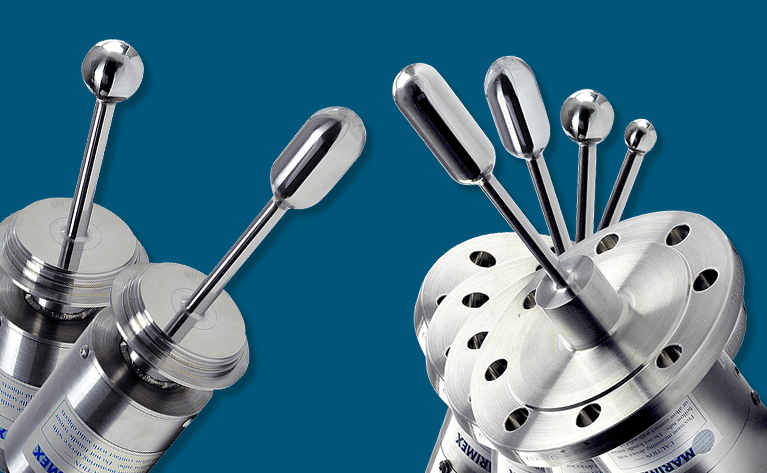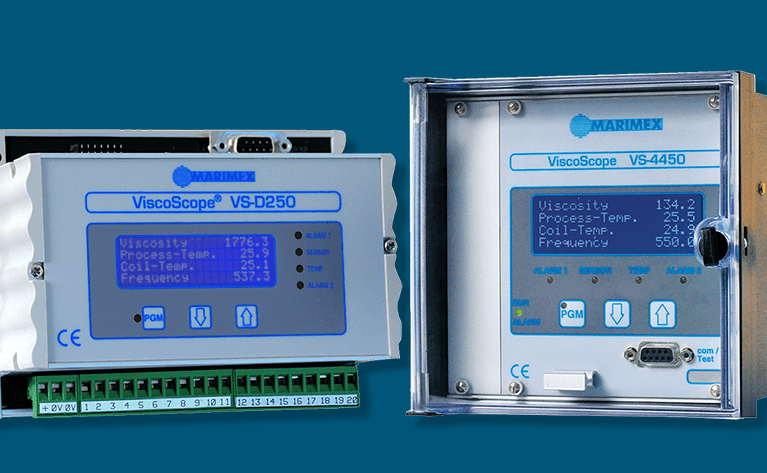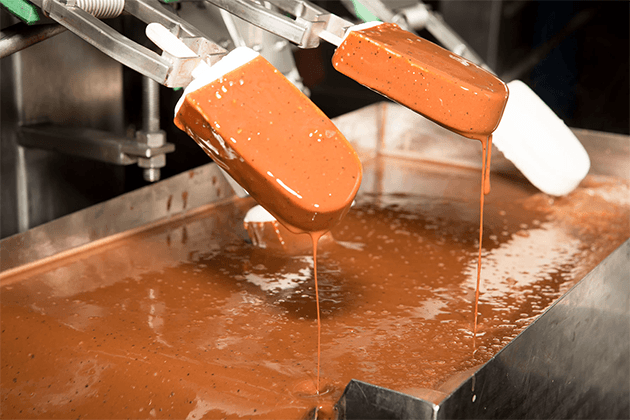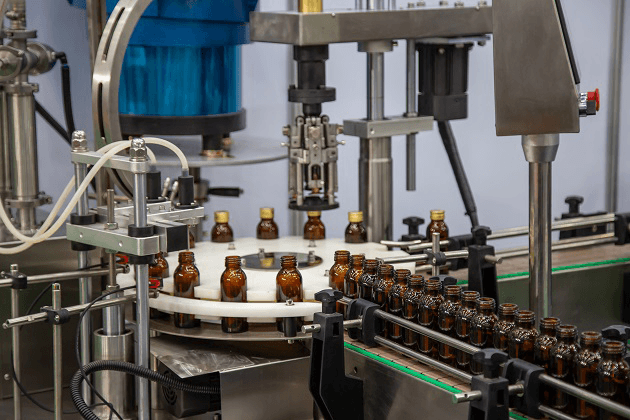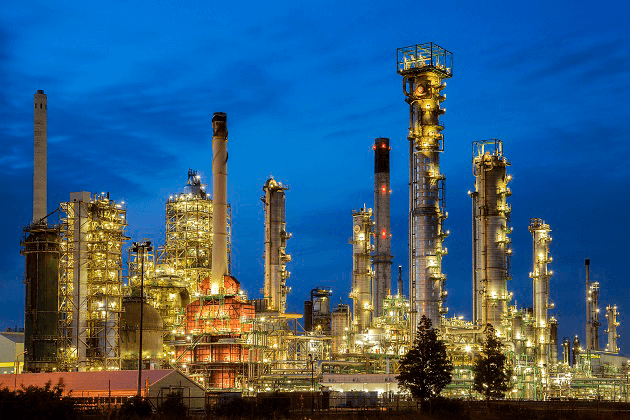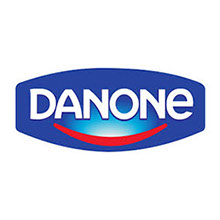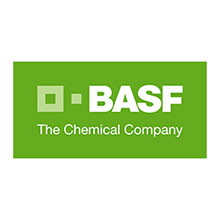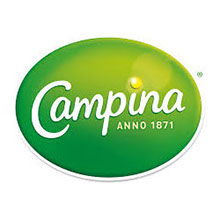Viscosity measurement in the chemical industry
- coatings
- paints and varnishes
- fine chemicals
- adhesives and sealants
- synthetic resins
- paper coatings
- silicones
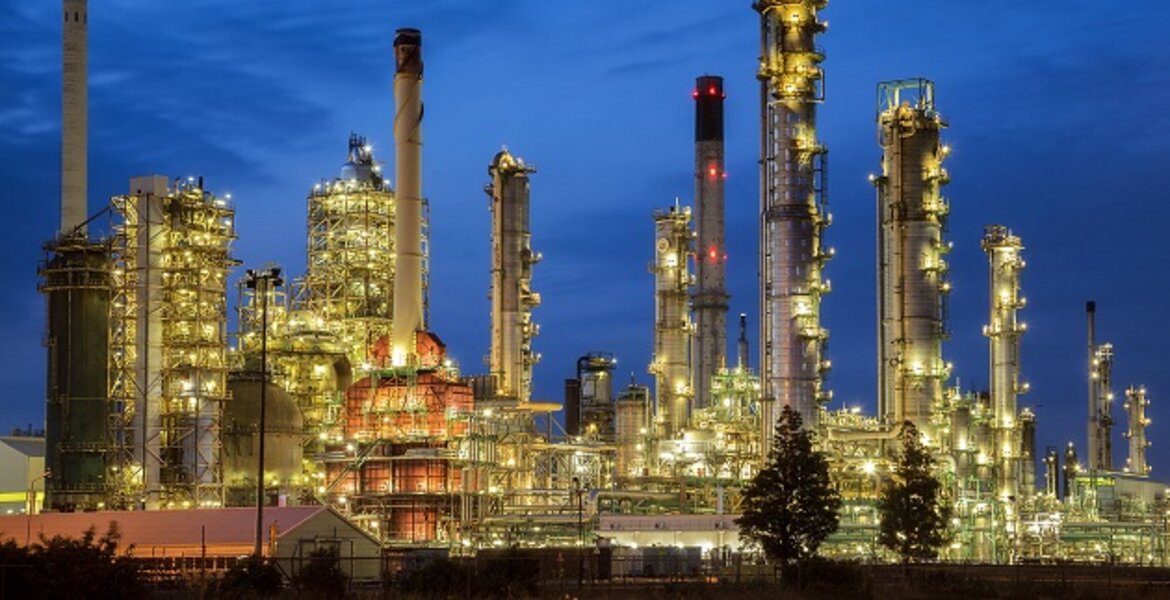
The chemical industry encompasses an almost limitless range of processes. It thus creates real challenges for measurement systems.
Our ViscoScope® process viscometer has a modular design that allows us to create the optimum system for practically every application.
At temperatures from -40 °C to 450 °C (or even up to 1500 °C with special designs), pressures from vacuum to 550 bar and viscosities from 0.1 to 2,500,000 mPa·s – our solutions meet every process requirement. Flanges in all standard sizes, incl. special flanges, fulfill every wish. Do you need an Ex version? Naturally, all our sensors are available with an ATEX/IECEx certificate.
Would you like to learn more? Please send an email to info@marimex.de. You will get in contact with you soon.
Applications of inline viscosity measurement in the chemical industry
ViscoScope Viscometer on coatings applications
A resin solution is pumped from a reservoir into an open application tray and back into the reservoir. The tray contains an application roller which applies the resin to a carrier material. The resin circuit ensures that the application roller is always supplied with fresh, homogeneous resin. The uniform distribution of the resin on the carrier material is key to determining the quality of the final product. For costeffective production, the resin layer should be no thicker than necessary. Because the tray is open, the solvent gradually evaporates causing the viscosity to increase over time. The ViscoScope® viscometer measures the viscosity throughout the process and displays any changes. Depending on the integration design of the ViscoScope® viscometer, solvent can be added automatically or manually to adjust the viscosity back to the optimum level.
ViscoScope Viscometer on paints and varnishes
Steel slabs are rolled into heavy plates ofvarious sizes and qualities, e.g. for use in shipbuilding, offshore construction, or pipe manufacturing. After straightening, the sheets are marked with a code to ensure they are correctly loaded i nto the rolling mill and the components can be correctly identified by the customer. A marking head applies the paint – which is mixed and stored in 20-liter containers – to the sheet.
Daily temperature changes in the rolling mill hall and the loss of solvent affect the viscosity of the paint. However, this must remain within a narrow range to prevent the typeface of the mark from changing – or even become illegible – due to excessive running or drying time. Since it is not feasible to control the temperature of the paint, the viscosity is adjusted by adding solvent or paint.
Until now, the viscosity was measured 2 to 3 times daily using a DIN flow cup. In a 3-shift operation, the results are often very different, e.g. because measurements during the night shift are taken at a lower temperature and the paint is already considerably warmer by the end of the morning shift.
Now, a ViscoScope® process viscometer can continuously measure the paint viscosity and display the trend. This trend enables the operator to adjust the viscosity to the optimum level throughout the day.
ViscoScope Viscometer on black liquor
During pulp production, the kraft process (a chemical digestion and cooking process) produces black liquor – a highenergy by-product containing lignin, water, and chemicals, with a dry matter
content of about 15%. In the liquor line, the black liquor is concentrated to about 75% and then burned in a recovery boiler (liquor boiler). The energy released is used to make steam for generating electricity. This is then used in the production process.
The molten salts formed on the bottom of the boiler flow along channels into the dissolving tank. Here, by means of various process steps, up to 99% of the chemicals (green liquor) are recovered and reused in the pulping process.
With conventional methods, the high sulfur content of the black liquor is a problem for the technical systems (corrosion). Moreover, the ViscoScope® sensor is subject to significant abrasion due to the high concentration of solids. Consequently, the sensors are made of Duplex SAF2205 (material 1.4462 / 318LN), a stainless steel that is more resistant than 1.4404 / 316L.
You would like to learn more and contact us? Use our contact form directly or send an e-mail to info@marimex.de. We are looking forward to your enquiry!
Just get in touch with us
Inline viscosity measurement in almost every industrial application.
Recommended Marimex Products
Marimex® Viskositätssensor ViscoScope
Inline Viscosimeter
The ViscoScope® Process Viscometer VA-100 is a maintenance-free precision viscometer for reliable real-time measurement of the dynamic viscosity of liquids.
Read moreMarimex® Transmitter
ViscoScope® Transmitter
The VS-D250 and VS-4450 transmitters are compatible with all ViscoScope® VA-100 and VA-300 sensors and their predecessors. This ensures the highest possible flexibility for optimal instrument selection and replacement of older transmitters.
Read moreIndustries and Applications
Inline viscosity measurement in almost every industrial application.
Benefit from our many years of experience in the Inline viscosity measurement !
Simply contact us by phone or email!
